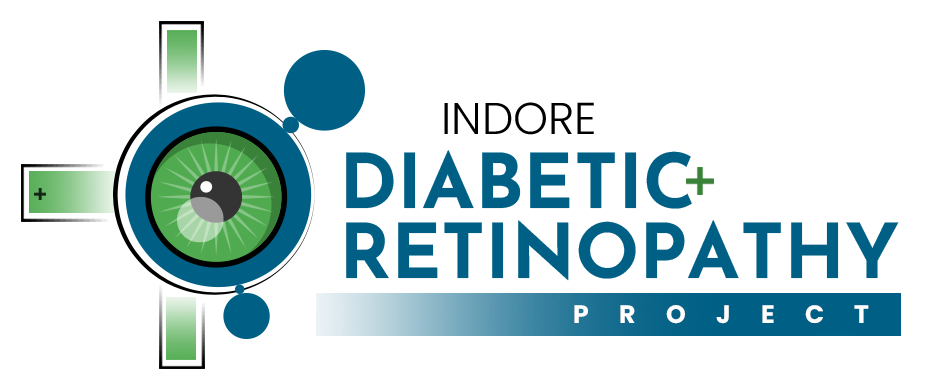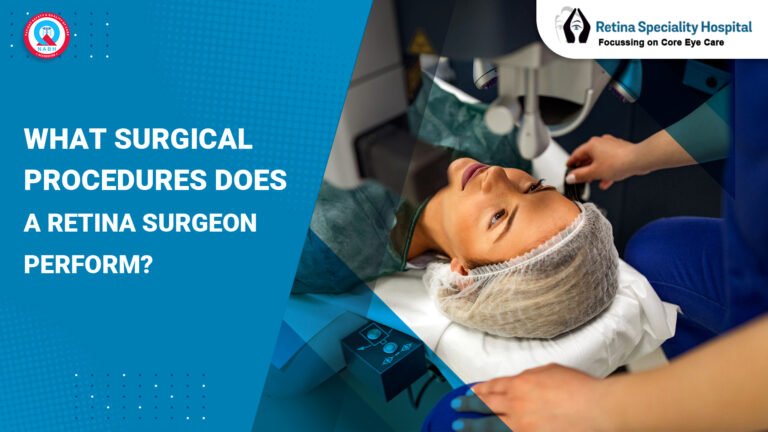INTRODUCTION
Cataracts: Causes, Symptoms, and Treatment Options
Cataracts are a common eye condition that affects millions of people worldwide, particularly as they age. This comprehensive guide will explore the causes, symptoms, and treatment options for cataracts, providing valuable information for those seeking eye care in Indore and beyond.
When it comes to eye care in Indore, residents are fortunate to have access to world-class facilities and expert professionals. The city boasts several state-of-the-art eye care centers equipped with the latest technology and staffed by highly skilled ophthalmologists. Whether you’re seeking routine eye check-ups or advanced treatments like cataract surgery, Indore’s eye care landscape offers comprehensive solutions for all your vision needs. From bustling clinics in the heart of the city to specialized hospitals on the outskirts, patients can choose from a wide range of options tailored to their specific requirements and preferences. This robust eye care infrastructure not only serves the local population but also attracts patients from neighboring regions, cementing Indore’s reputation as a hub for quality eye care in central India.
Understanding Cataracts
A cataract is a clouding of the eye’s natural lens, which lies behind the iris and pupil. This lens works much like a camera lens, focusing light onto the retina at the back of the eye. As we age, proteins in the lens begin to break down and clump together, forming a cloudy area that impairs vision.
Causes of Cataracts
While aging is the most common cause of cataracts, several other factors can contribute to their development:
- Age-related changes: As we get older, the proteins in our eye’s lens begin to break down and clump together.
- Genetics: Some people may be genetically predisposed to developing cataracts.
- Medical conditions: Certain diseases, such as diabetes, can increase the risk of cataracts.
- Eye injuries: Trauma to the eye can sometimes lead to cataract formation.
- Prolonged exposure to UV radiation: Excessive sun exposure without proper eye protection can contribute to cataract development.
- Smoking and alcohol consumption: These lifestyle factors have been linked to an increased risk of cataracts.
- Certain medications: Long-term use of corticosteroids and other medications can sometimes lead to cataracts.
Symptoms of Cataracts
The development of cataracts is usually gradual, and symptoms may not be noticeable in the early stages. As the condition progresses, you may experience:
- Blurred or cloudy vision
- Increased difficulty seeing at night
- Sensitivity to light and glare
- Seeing “halos” around lights
- Fading or yellowing of colors
- Frequent changes in eyeglass or contact lens prescription
- Double vision in a single eye
If you’re experiencing any of these symptoms, it’s crucial to consult with an eye specialist in Indore or your local area for a comprehensive eye examination.
Diagnosis of Cataracts
Diagnosing cataracts typically involves a series of tests performed by an eye care professional. These may include:
- Visual acuity test: This measures how well you can read letters on an eye chart.
- Slit-lamp examination: This allows the doctor to examine the structures at the front of your eye under magnification.
- Retinal examination: The doctor will dilate your pupils to examine the back of your eyes.
- Tonometry: This measures the pressure inside your eye.
- Potential acuity meter (PAM) test: This helps predict how much your vision might improve after cataract surgery.
Treatment Options for Cataracts
In the early stages of cataracts, vision can often be improved with new eyeglasses, brighter lighting, anti-glare sunglasses, or magnifying lenses. However, if these measures don’t help, surgery is the only effective treatment.
Cataract Surgery
Cataract surgery is one of the most common and successful surgical procedures performed today. During the surgery, the cloudy lens is removed and replaced with an artificial intraocular lens (IOL).
Types of Cataract Surgery:
- Phacoemulsification: This is the most common type of cataract surgery. It involves using ultrasound waves to break up the lens before removing it.
- Extracapsular cataract extraction: In this procedure, the cloudy part of the lens is removed through a larger incision in the cornea.
- Laser-assisted cataract surgery: This advanced technique uses a laser to create incisions and soften the cataract, potentially improving precision and outcomes.
Choosing an Eye Care Provider
When seeking treatment for cataracts or any other eye condition, it’s essential to choose a reputable eye care provider. In Indore, there are several options for high-quality eye care:
- Eye care in Indore: The city boasts numerous clinics and hospitals specializing in eye care, offering a range of services from routine check-ups to advanced surgical procedures.
- Best eye doctor in Indore: Look for ophthalmologists with extensive experience in cataract surgery and positive patient reviews.
- Eye hospital Indore: Several well-equipped hospitals in the city specialize in eye care, providing comprehensive services under one roof.
- Eye specialist in Indore: Seek out board-certified ophthalmologists who specialize in cataract treatment and other eye conditions.
- Best eye hospital in Indore: Research hospitals with state-of-the-art facilities and a track record of successful cataract surgeries.
- Best eye specialist in Indore: Look for doctors who stay up-to-date with the latest advancements in cataract treatment and have a good reputation in the community.
- Eye care hospital Indore: Choose a hospital that offers a full range of eye care services, from diagnosis to post-operative care.
Preparing for Cataract Surgery
If you and your doctor decide that cataract surgery is right for you, there are several steps to prepare:
- Pre-operative evaluation: Your doctor will perform a comprehensive eye exam and take measurements to determine the right type of IOL for you.
- Discuss your medications: Inform your doctor about any medications you’re taking, as some may need to be temporarily stopped before surgery.
- Arrange for transportation: You won’t be able to drive immediately after the surgery, so arrange for someone to take you home.
- Follow pre-operative instructions: Your doctor may give you specific instructions to follow in the days leading up to the surgery, such as using antibiotic eye drops.
The Cataract Surgery Procedure
Cataract surgery is typically an outpatient procedure, meaning you can go home the same day. The surgery itself usually takes less than an hour. Here’s what you can expect:
- Your eye will be numbed with local anesthesia.
- The surgeon will make a tiny incision in your eye.
- Using phacoemulsification or another technique, the cloudy lens will be removed.
- The new artificial lens will be inserted through the same incision.
- In most cases, the incision is so small that it heals on its own without stitches.
Recovery After Cataract Surgery
Recovery from cataract surgery is usually quick, with most people able to resume normal activities within a few days. However, complete healing may take several weeks. During this time:
- Use prescribed eye drops to prevent infection and reduce inflammation.
- Wear an eye shield while sleeping for the first few nights.
- Avoid rubbing your eye or exposing it to irritants.
- Attend follow-up appointments as scheduled by your doctor.
Most people notice improved vision within the first 24 hours after surgery, with vision continuing to improve over the following days and weeks.
Preventing Cataracts
While not all cataracts can be prevented, there are steps you can take to reduce your risk:
- Protect your eyes from UV radiation by wearing sunglasses and a hat with a brim.
- Quit smoking and limit alcohol consumption.
- Eat a diet rich in fruits and vegetables, particularly those high in antioxidants.
- Maintain a healthy weight and control conditions like diabetes.
- Have regular eye exams to detect any issues early.
The Importance of Regular Eye Check-ups
Regular eye examinations are crucial for maintaining good eye health and detecting conditions like cataracts in their early stages. In Indore, there are many options for eye care, including:
- Eye care centre in Indore: These specialized clinics offer comprehensive eye exams and screenings.
- Hospital for eye Indore: Full-service eye hospitals provide a wide range of diagnostic and treatment options.
- Indore best eye hospital: Top-rated hospitals offer advanced technology and experienced specialists.
- Best eye dr in Indore: Seek out highly recommended ophthalmologists for your eye care needs.
- Best eye care hospital in Indore: Look for hospitals with a reputation for excellence in eye care.
FAQs About Cataracts
Q: At what age do cataracts typically develop?
A: While cataracts can occur at any age, they are most common in people over 60. At Retina Specialty Hospital, we see patients with age-related cataracts typically starting in their 60s or 70s.
Q: Can cataracts come back after surgery?
A: No, cataracts cannot return after surgery because the entire natural lens is removed. However, some people may experience clouding of the capsule that holds the artificial lens. This can be easily treated with a laser procedure. At Retina Specialty Hospital, we provide comprehensive post-operative care to address any such issues.
Q: How long does cataract surgery take?
A: The actual surgical procedure usually takes about 15-20 minutes per eye. However, at Retina Specialty Hospital, we advise patients to plan for being at the hospital for 2-3 hours to allow for preparation and initial recovery.
Q: Is cataract surgery painful?
A: Cataract surgery is generally not painful. At Retina Specialty Hospital, we use local anesthesia to numb the eye, and patients may feel some pressure during the procedure, but typically no pain.
Q: How soon after cataract surgery can I resume normal activities?
A: Most patients can resume light activities within a few days after surgery. At Retina Specialty Hospital, we provide personalized post-operative instructions, but generally, patients can return to most normal activities within a week, with some restrictions for several weeks.
Conclusion
Cataracts are a common age-related eye condition that can significantly impact your quality of life. However, with modern medical advancements, cataract surgery has become a safe and effective solution for restoring clear vision. If you’re experiencing symptoms of cataracts or are due for an eye check-up, don’t hesitate to seek professional care.
As we’ve explored the complexities of cataracts and their treatment options, it’s clear that seeking professional care is crucial for maintaining healthy vision. For those in search of the best eye hospital in Indore, there are several excellent options to consider. These top-tier facilities combine cutting-edge technology with the expertise of skilled ophthalmologists to provide comprehensive eye care services. From advanced diagnostic equipment to state-of-the-art surgical suites, the best eye hospitals in Indore offer everything needed for successful cataract treatment and a wide range of other eye conditions. These hospitals not only focus on providing exceptional medical care but also prioritize patient comfort and education, ensuring that individuals fully understand their condition and treatment options. By choosing a reputable eye hospital in Indore, patients can feel confident that they’re receiving the highest standard of care for their cataracts and overall eye health.
At Retina Specialty Hospital, we are committed to providing exceptional eye care to the residents of Indore and beyond. Our team of experienced ophthalmologists, state-of-the-art technology, and comprehensive approach to eye health make us a leading choice for cataract treatment and other eye care needs.
Don’t let cataracts cloud your vision and limit your life. Take the first step towards clearer, brighter vision today. Contact Retina Specialty Hospital to schedule a comprehensive eye examination or to learn more about our cataract treatment options. Our friendly staff is ready to answer your questions and guide you through the process of restoring your vision.Call us now or visit our website to book an appointment. Your journey to better vision starts here at Retina Specialty Hospital – where your eye health is our top priority.












